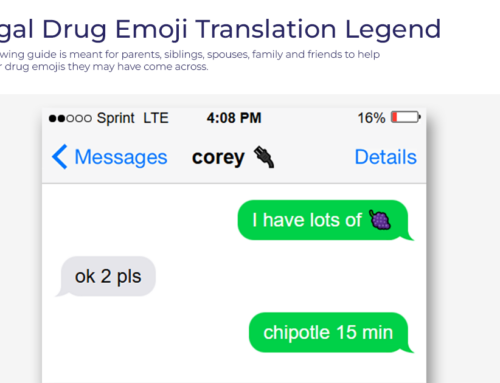Zoloft®, generic name Sertraline, is a common medication and one of the more important medications you might be taking for your mental health.
Unfortunately, as many probably know firsthand, these medications can work long-term for some people, and may only work short-term or not at all for other people.
There are many different reasons that you might need to stop taking Zoloft®, which we’ll discuss in more detail later on. No matter why you need to stop taking this important medication, it’s critical to understand that you are relatively likely to have withdrawal symptoms when you stop, and that withdrawal is a normal, if difficult, part of getting off of this medication.
Here’s what you need to know about what Zoloft® does, why you might need to stop taking the medication, what you can expect from Zoloft® withdrawal symptoms, the timeline, and how you can get through it.
What Is Zoloft® And What Is It Used For?
First things first, Zoloft® is an antidepressant medication that can be used for a wide range of mental health disorders. The most common uses of Zoloft® include treatment for:
In some cases, Zoloft® may also be used off-label for other disorders or conditions, with doctor oversight and approval. Most of the time when Zoloft® is used this way, it’s to treat similar symptoms and problems as the ones that come with the approved disorders, and it may be used in combination with other medications to achieve the desired relief from symptoms.
Normally, when someone is prescribed Zoloft®, they are warned about how important it is to take the medications regularly and on as much of a set schedule as possible. That’s because people who miss a dose of this medication, or who struggle with taking their medication regularly, may be at risk of relapsing in their condition or starting to get withdrawal symptoms between doses.
Remember that, like most mental health medications, Zoloft® can create a chemical dependence in your body. This means once you’ve been taking Zoloft® regularly for a while, your body gets used to having access to the medication and doesn’t function normally without it. Even if you haven’t been able to take the medication regularly, and have consistently missed doses or taking the medication on an irregular schedule, you will still probably develop a chemical dependence on the medication.
Taking Zoloft® or any mental health medication may also increase your risk of a mental health relapse, or increase your risk of suicidal thoughts or actions, self-harm, and other serious side effects of your disorder.
If you are worried about your ability to take a medication regularly, it’s a good idea to talk with your prescriber or other mental health practitioners about strategies you can use to build the habit or to remind yourself to take the medication when you need it.
Why Would You Need To Stop Taking Zoloft®?
Zoloft® is one of the most common antidepressants on the market, so why would you need to stop taking this medication?
There are many reasons. One of the most prevalent is that not everyone receiving mental health treatment will respond the same way to different medications. You may start taking Zoloft®, and, a few months later, realize that the medication isn’t a good fit or doesn’t adequately cover your symptoms. Your doctor may recommend stopping the medication so you can try something else if that happens.
It’s also relatively common for the effectiveness of antidepressant medications to change over time. Zoloft® might be an effective medication for you for a while, but then stop working the way you need it to after taking it for months or even years.
Another common reason to stop taking an antidepressant like Zoloft® is that you may no longer need an antidepressant at all, or you and your care providers might want to see how you do without one to assess whether you still need medication, or if other treatments might be a better fit. The most important thing when it comes to stopping a mental health medication like Zoloft® is that you shouldn’t stop taking the drug without medical supervision, ideally from a qualified mental health provider and that you shouldn’t stop taking the medication suddenly.
Unfortunately, if you have been taking Zoloft® for more than a couple of weeks, there is a chance that you will experience withdrawal symptoms when you stop taking the medication, even if you stop with doctor approval and supervision. That means that anyone who starts taking Zoloft® should be aware of, and prepared for, the possibility of going through withdrawal.
What Does Zoloft® Withdrawal Look Like?
Zoloft® withdrawal can be complicated, especially for people who have been on the drug for a long time. The good news is that there is much information out there about what Zoloft® withdrawal can and does look like and how to manage symptoms.
The most important thing you should know before heading into withdrawal is that Zoloft® is an SSRI, a selective serotonin reuptake inhibitor, which means that Zoloft® withdrawal is functionally similar to other SSRIs withdrawal.
Some people can have complications when coming off of SSRIs that go beyond the normal withdrawal symptoms and may make stopping taking these medications entirely unrealistic. When this happens, if you need to switch medications, your prescribing doctor may recommend starting a different medication before you entirely stop taking the first.
While this is rare, it can be effective for people who struggle to be completely off of SSRI medications, or for whom withdrawal symptoms are too intolerable or dangerous to manage.
For most people though, this is a relatively mild withdrawal and can be managed on your own with support from medical care providers as well as friends and family.
Zoloft® Withdrawal Symptoms
Here are a few common symptoms of Zoloft® withdrawal, but it is important to remember that withdrawal can look a little different for everyone and that you may experience more or less severe symptoms, or uncommon symptoms when you go through withdrawal.
Common symptoms include:
Some people experience very few symptoms of withdrawal, while other people would describe their symptoms as severe or difficult to deal with.
Struggling To Stop Taking Zoloft® On Your Own?
While most people can stop Zoloft® on their own, complicated cases can require additional treatment and support, especially if you are also experiencing mental health complications at the same time.
One of the options if you are having a difficult time withdrawing from Zoloft® or are anticipating a difficult withdrawal based on past experience, you may want to go to a treatment center for additional care.
If you’re worried about Zoloft® withdrawal, or just want a little extra support, contact Achieve Wellness to learn more about our programs and how we can help.
We work with most insurance companies. Please note we are not affiliated with or endorsed by insurance companies.
No Medicaid Accepted.

Medically Reviewed By
Nicole Rettino-Lambert LCSW, LCADC, CCS, CCTP, CSTIP
Nicole Rettino-Lambert is a dually licensed clinician with over 20 years of experience working with children, adolescents, and adults in both addiction treatment and mental health treatment. Along with extensive experience in clinical work, she has held leadership roles in both inpatient and outpatient addiction treatments centers in New Jersey. Throughout her various leadership positions, Rettino-Lambert has developed clinical programming, assisted staff in their growth and development in the clinical field, and had the privilege of helping numerous individuals on their path to recovery.
As a clinician, Rettino-Lambert specializes in addiction trauma, mental health, self-harm behaviors, anxiety, intimacy issues, sex addiction, and personality disorders. She holds certifications as a clinical trauma professional and sex informed professional. Her passion and purpose as a clinician are to help individuals find their voice, purpose, and motivation through their recovery. She takes pride in being part of the process that helps those who are fighting for their lives to achieve both sobriety and wellness.In her role as a Clinical Director at Achieve Wellness and Recovery, Rettino-Lambert works tirelessly to ensure that her staff feels supported in their roles, continues their clinical growth and development, and is empowered to become the best versions of themselves. She firmly believes that all the staff are an essential part of clients’ recovery journey and that they deserve continuous compassion, empathy, acknowledgment, and support from leadership.





















